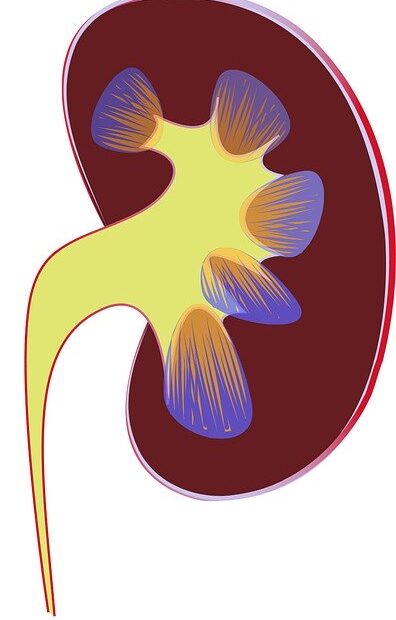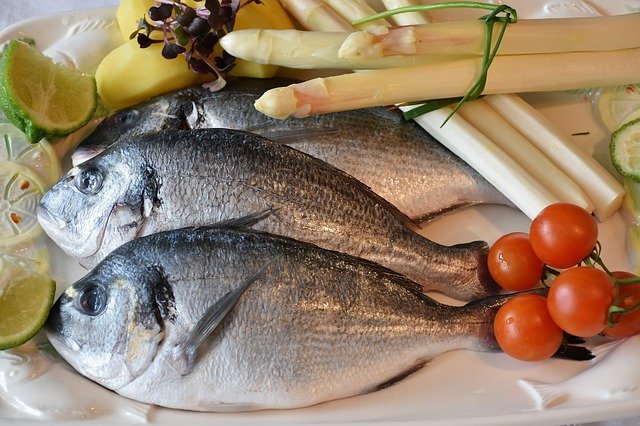Stones in the kidneys or ureter refer to crystals, which when enlarged can block the urinary tract. They are largely related to our diet. Our advice to limit the risk of recurrence. Here is how to prevent recurrences of urinary or kidney stones.
Summary
- A better lifestyle reduces the risk of recurrence
- Two liters of water per day
- Calcium: neither too much nor too little
- Salt: as little as possible in case of kidney stones
The stones are formed from minerals eliminated in the urine by the kidneys (this is called renal or urinary lithiasis ).
In more than 80% of cases, these are calcium crystals (oxalate or phosphate) which agglomerate in a kind of pebble.
In 10% of cases, uric acid crystallizes. More rarely, they are other minerals such as ammonia-magnesium phosphate.
This process begins when the concentration of minerals in the urine is too high. The stones form and grow in the kidney. They can also pass through the ureter, the channel that connects the kidney to the bladder.
As long as the diameter of the urinary or renal calculus remains less than 6 millimeters, it can be eliminated naturally in the urine. Larger, it can remain blocked, causing symptoms typical of renal colic : brutal and violent pain in the side with, sometimes, blood in the urine.
The main responsible for these calculations: an inadequate diet. The lithiasis patients eat too much, eat badly and do not drink enough”, summarizes experts.
A better lifestyle reduces the risk of recurrence
The goal is not to go on a diet or remove certain foods, but to rebalance its menus by respecting certain simple principles. And, thus, to limit the risk of recurrence.
The nature of a urinary calculus (calcium, uric or other) is determined by an analysis of the fragments evacuated by the patient, or removed by the surgeon, supplemented by a blood and urine assessment. On this basis, nutritional advice can be given to the patient in order to limit the risk of relapse, as experts explains: “Studies show that, if we just remove the stone, half of the patients reoffend. On the other hand, if they observe food rules, the recidivism rate remains below 10%. “
These recommendations have other advantages: they help fight against overweight, high blood pressure and diabetes, known risk factors for urinary stones.
Two liters of water per day
To eliminate excess mineral salts , you have to urinate two liters per day, so drink more than two liters of water throughout the day. A small glass of water before bedtime is advised. The oranges and lemons pressed bring citrate, “a protector that prevents the calcium to crystallize,” says experts. One to two glasses of juice are recommended each day.
Beware of certain drinks such as tea or beer, as well as sodas and industrial fruit juices rich in sugar. They promote uric acid stones.
Choosing the right mineral water
All waters are safe to drink, including tap water , but you can adapt your choices according to the type of urinary calculus:
For calcium calculations: Water low in calcium (Volvic, Evian, etc.) may be suitable for those who consume enough dairy products.
For uric stones : sparkling waters rich in bicarbonates (Saint-Yorre, Rozanna, Arvie, etc.) help prevent stone formation.
Calcium: Neither too much nor too little
Contrary to popular belief, calcium remains essential, even in people prone to urinary stones. This element is necessary for bone remodeling. Daily intake should be between 800 milligrams (mg) and one gram.
Two to three dairy products a day provide about 500 mg of calcium. 100 grams of Gruyère or Comté alone provide more than 900 mg of calcium. In patients who do not consume dairy products, calcium mineral water, that is to say providing at least 400 mg per liter, is recommended (Courmayeur, Contrex, Hepar, etc.). One liter of Hepar provides 600 mg of calcium.
Meat and fish: Eat in moderation
The animal protein promote calcium excretion in urine. Better to limit intakes to 150 grams per day and favor a diet rich in fruits and vegetables. The experts recommends not to eat more than one meal of animal protein per day.
Salt: As little as possible in case of kidney stones
Eliminated in the urine, salt carries with it calcium and reduces the action of protective proteins against urinary stones. At the table, we avoid re-eating the dishes and we limit the delicatessen. The maximum dose is five grams per day. Note: some mineral waters like Vichy are very salty.
Limit certain foods
These foods are not prohibited, but their consumption must remain limited and be accompanied by plenty of water.
They are rich in calcium oxalate : dark chocolate, rhubarb, peanuts, nuts, hazelnuts, almonds, spinach, asparagus, beets, figs, sorrel, tea…
They are rich in uric acid : cold meats, certain fish (herring, tuna, sardines in oil…), organ meats (kidneys, liver, sweetbreads…), seafood… How to prevent recurrences of urinary or kidney stones.
Eating better to maintain mental health
Broccoli, A superfood everyone should eat.
All About Vitamin D: How to meet your needs
What food is good for a healthy heart? Food for healthy heart


